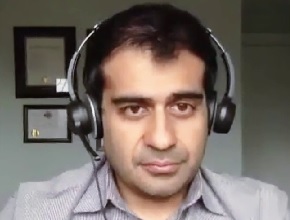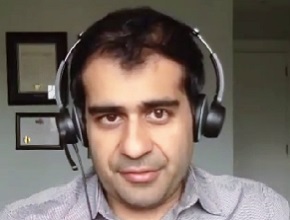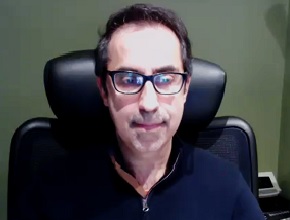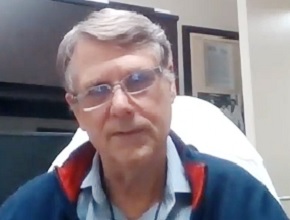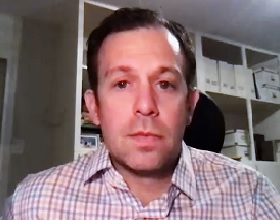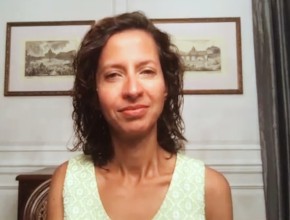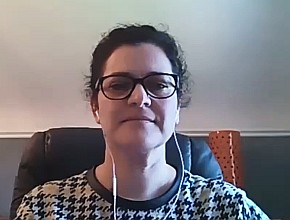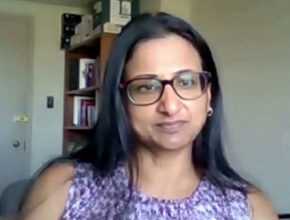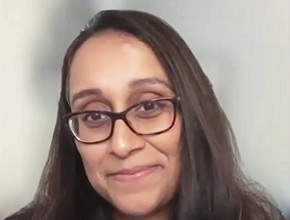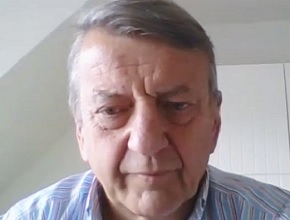Dr Zain Chagla, associate professor at the Faculty of Health Sciences at McMaster University, connects with Dr Roman Jaeschke to talk about the currently used prophylaxis and treatment of coronavirus disease 2019 (COVID-19).
For part 1 of the interview, click here. For part 2, click here.
Roman Jaeschke, MD, MSc: Good afternoon, welcome to another edition of McMaster Perspective with Dr Zain Chagla, whom you well know by now. Zain, if you were to meet a friend in an elevator and you know that you have 2 minutes, it’s a big building, and the friend asks you “What should I use to prevent COVID-19 these days in Hamilton, in Ontario?”, what’s your semi-official advice?
Zain Chagla, MD, MSc: Absolute pre-exposure prevention. The only evidence-based therapy right now is vaccination. There are some small studies that have been done in nursing homes around monoclonal antibodies in high-risk individuals, [but] knowing the issues with that therapy—particularly administration and having them available—vaccines are a whole lot more effective from a practical standpoint in that context. For postexposure or, particularly, early treatment, there are clinical trials ongoing for a number of therapies: monoclonal antibodies; interferon-based therapies; fluvoxamine, which is a serotonergic drug that may have some activity in phase 2 trials; colchicine, which had a small study done in Montreal that showed some benefit in terms of reducing hospitalization, recognizing a significant amount of side effects that may be induced by it—the number needed to treat (NNT) was about 70. Realistically, these are fairly early therapies that are of limited value currently but certainly will be of more value particularly in the postvaccine era when high-risk individuals will likely need something even if they are vaccinated to prevent them from being hospitalized.
Roman Jaeschke: So, your friend insists and the doors to the elevator are open. What should I start taking today? I’m at moderate risk.
Zain Chagla: Again, the best thing is vaccination. There is no evidence for hydroxychloroquine, vitamin D, zinc, and some of these other… ivermectin and some [of] these other therapies as preemptive or prophylactic therapies.
Roman Jaeschke: So, doctor, I should not be taking anything?
Zain Chagla: Just again, vaccines, vaccines, vaccines. They’re the most efficacious preemptive therapy.
Roman Jaeschke: All right. Well, thank you. Thank you for your expertise again. Dr Chagla, this is the beginning of April and I have more experience with hospitalized patients. I’m asking a question about outpatients, where I know nothing. From what I observe people with no symptoms or minimal symptoms do not receive any specific therapy. How about people who have more severe symptoms but do not require hospitalizations, do not require oxygen? Do we have something? Do you advise family doctors to use something these days?
Zain Chagla: There are really 2 big therapies that have been looked at in this setting, outside of oxygenated patients [in whom] other drugs have really been looked at, [like] steroids, remdesivir, and tocilizumab. In terms of that early therapy, really 2 things have been looked at. Three things actually. One is monoclonal antibodies, different combinations of them. There are a number that are coming to the market—a few different companies and combinations thereof—that may prevent hospitalization in high-risk individuals and that may actually be given to certain individuals not necessarily by symptoms but by risk. Certainly in the US experience, this has been part of the therapeutics in high-risk individuals, majorly immunosuppressed individuals, where the outcomes from COVID-19 are gonna be poor.
Roman Jaeschke: Do we use it in Hamilton?
Zain Chagla: We do not have the availability. They are approved by Health Canada, a couple of these antibodies—bamlanivimab in general—but the infrastructure to actually do this requires an infusion center that’s COVID-19–trained, access to fairly aggressive testing early, because you wanna get people on monoclonals early, and the monitoring that’ll actually deal with it. So, there are only clinical trial places, there are small clinics across Ontario, but there is not really a large network to actually provide this.
Roman Jaeschke: So, there is some evidence but in practice not being used widely at all. It was [number] 1 that you mentioned—monoclonal antibodies.
Zain Chagla: Yes. Number 2: colchicine. This is from the COLCORONA (Colchicine Coronavirus SARS-CoV2) trial at Montreal—a large trial, [they] gave 30 days of colchicine to patients as part of therapy after an early diagnosis of COVID-19. There was a slight symptom reduction. There was a slight reduction in hospitalization with the NNT of ~71 to prevent hospitalization. It’s not terrible, but considering it was a younger cohort, it was hard to say who benefitted from that most. But it is something to consider in the high-risk patients. There was certainly some subgroup analysis suggesting men and [those with] diabetes may have improved more by outcomes as compared with the other groups.
Roman Jaeschke: So, let me push you. A 65-year-old male diabetic, maybe a little obese, maybe with hypertension, acquired COVID-19, not terrible symptoms but clearly symptomatic. Would you be surprised by either giving it or not giving it?
Zain Chagla: If the NNT is 71, [I] could consider it—it’s not gonna be the miracle drug at this point to prevent hospitalization, but it might reduce symptom onset to at least reduce hospitalization. With that in mind: patients who do get this therapy need very good counseling around the gastrointestinal (GI) side effects, knowing that COVID-19 has significant GI toxicity associated with it as well. We obviously don’t wanna flip people into things like acute kidney injury with diarrhea from giving this therapy, so making sure patients have access to hydration—understand how to keep up with intake alongside therapy. But it could be considered in a certain context of high-risk patients in whom you can’t find any other therapies to offer.
Roman Jaeschke: No strong recommendation, rather a weak suggestion or recommendation?
Zain Chagla: Weak suggestion or recommendation, based on a randomized controlled trial (RCT) though; a placebo-controlled RCT.
Roman Jaeschke: Thank you very much. I really appreciate the wisdom as of April 5, 2021, and our wisdom keeps changing on us. I really appreciate your input, Zain. Thank you.
Zain Chagla: No problem.
 English
English
 Español
Español
 українська
українська

